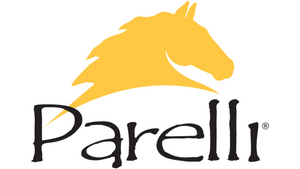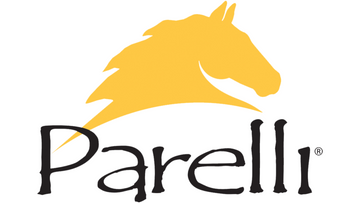Camping with Horses: What You Need to Know
par Parelli Natural Horsemanship sur Jul 27, 2022

Taking your horse camping is a great way to share a new adventure with your best friend. Camping allows you to travel further away and for longer periods than you could by trailering to a trail for a day. Experiencing new trails together can expand your relationship with your horse, too.
But, having a great camping experience with your horse takes preparation and planning.
Research
Research places you would like to travel to and equestrian campground options in the area. You can contact your national, state, and local land agencies to find horse camping spots near you. Many campgrounds offer equestrian campsite areas with a paddock or a horse corral.
Pro tip: Confirm the water situation at the horse campground and the paddocks. You may need to provide your drinking water.
There are two basic ways to camp with your horse: setting up a site next to your truck and horse trailer or riding into the woods with all your gear and setting up camp. Each type of camping with requires different camping and possibly different equipment.
Preparing Your Horse
Has your horse ever been camping? Some horses adapt very quickly to a change of scenery, while others get very nervous. If you trail ride regularly and travel with your horse, they will likely adapt well to this new adventure. If you do not work on calming your horse in new situations, this is something you should practice before your trip.
You can practice camping with your horse right at the barn. While camping, horses can be tied to the trailer, put into a portable pen (made from panels from home), or high-lined. High-lined is when a rope is tied between two trees over the horse’s ear level. The horse is tied to the line and can pivot around or lay down.
If you are using panels brought from home, put your horse’s camp together and get them familiar with it at home. This allows them to become comfortable with the new setup before entering a new environment.
If you are traveling to an equestrian campsite where the horses need to be tied, consider how well your horse stands for long periods. Whether your horse is tied to the horse trailer overnight or high-lined, they should stand calmly without pawing, weaving, or pulling back.
These new situations are an excellent opportunity to build a stronger trust-based relationship with your horse. Remember to prepare ahead of time, be patient, and help them adapt to the new adventure.
How Do You Want to Camp?
Horse camps fall into three categories: developed, semi-developed, and wilderness.
Developed horse camps are an excellent choice for first-time horse campers. These camps offer horse pens, wash racks, horse trailer hook-ups, parking, and showers. Some even have cabins, stalls, guided rides, and horse care services.
A semi-developed horse campsite is usually found on federal lands and accessed from dirt roads. These are a bit more rural and sometimes have horse pens for horseback riders.
Wilderness horse camps are for serious campers and equestrian adventures. These are very rural with no amenities but generally have amazing access to equestrian trails. If you are doing wilderness camping, you must bring everything, including drinking water.
If you decide on a developed or semi-developed horse campsite, you often need to book a site in advance. Some of these campsites book up very quickly, so be sure to plan ahead. You can request a map of the campground and look at the various available campsites before making your site selection. Some sites may be closer to water and have electrical hookups, while others are further into the woods with fewer amenities.
Packing Feed and Water
Pack your horse’s regular hay and grain and plenty of clean drinking water. Horses will drink about 12 gallons of water per day. If your campground does not have accessible water, you’ll need to bring enough for several days.
Some states have strict feed restrictions, requiring you to feed “certified weed-free” while camping. You can ask the campground about any feeding requirements. They will be able to provide information about their property and surrounding trails. If the specific feed is needed, switching your horse’s feed several weeks before your trip is important. Abrupt changes in feed can result in colic and loose manure, which is something you want to avoid.
Health Requirements for Horse Campsites
When traveling with horses, you are required to carry a negative Coggins. If traveling out of state, you need a health certificate signed by your veterinarian. Some campgrounds require vaccination records. Make sure to double-check documentation for your destination state and campground.
We recommend having your farrier out a week before your trip to ensure your horse’s hooves are in good condition. Depending on the duration of your camping trip, it might be a good idea to have your horse’s shoes reset. Losing a shoe on the trail will put a damper on your trail riding plans. If your horse is shod, consider carrying a set of emergency hoof boots.
Horse Camping Checklist
Your horse camping checklist should include all the necessities to care for your horse during the trip. Keep in mind, that this list will need to be adjusted depending on your style of camping, location, and the duration of your camping trip.
- Feed/Water
- Buckets
- Blankets
- Halters/Lead ropes
- Fly Spray/Sheets
- Tack
- First Aid Kit
- Grooming Supplies
- Extra rope
Don’t forget to make a packing list for your camping supplies. This list should include:
- Tent/Sleeping Bag
- Food
- Drinkable Water
- Human First Aid Kit
- Shovel
- Rope
- Clothing (pack an extra set of shoes in case your main set gets wet!)
- Tarp
- Cooking equipment
- Fire Starter
Once you have started camping with your horse, you’ll be amazed at the number of places you can go!
If you have never been horse camping and want to try it with some help, look for a guided horse-camping trip. The pros will teach you everything you need to know.







